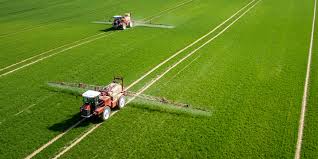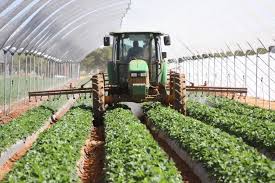Evaluation can be seen as synonymous with tests, descriptions, documents, or even management. Many definitions have been developed, but a comprehensive definition presented by the Joint Committee on Standards for Educational Evaluation (1994) holds that evaluation is “a systematic investigation of the worth or merit of an object.
This definition centers on the goal of using evaluation for a purpose. Accordingly, evaluations should be conducted for action-related reasons, and the information provided should facilitate deciding a course of action.
Read Also: Anemone Flowers – All you need to know
Meaning of Agricultural Project Evaluation

To evaluate means to assess. Thus, agricultural project evaluation is an assessment of the project during the course of implementation. It is an interim assessment at major milestones. Evaluating the project at major milestones during implementation will steer the project in the right direction.
Project evaluation is an attempt to determine if the overall status and progress of the project are acceptable compared to what was planned earlier and whether the objectives are being achieved. The ultimate aim of project evaluation is to bring about all-round improvements in project planning and execution.
Over the years, evaluation has frequently been viewed as an adversarial process. Its main use has been to provide a “thumbs-up” or “thumbs-down” about a program or project.
In this role, it has all too often been considered by project directors and coordinators as an external imposition that is threatening, disruptive, and not very helpful to project staff. While that may be true in some situations, evaluations need not be, and most often are not, conducted in an adversarial mode.
The current view of evaluation stresses the inherent interrelationships between evaluation and program implementation. Evaluation is not separate from, or added to, a project; rather, it is part of it from the beginning. Planning, evaluation, and implementation are all parts of a whole, and they work best when they work together.
Read Also: Winter Aconite Flowers (Eranthis hyemalis) – All you need to know
Objectives of Agricultural Project Evaluation

The objectives of project evaluation in agricultural projects are to:
1. Verify if the progress of project implementation is as planned and take corrective measures if the project lags behind schedule.
2. Ascertain whether the actual costs are within the budgeted costs at different stages of implementation and take steps to contain costs if actual costs escalate beyond the budget.
3. Ensure that the quality standards of the project are reached without compromise.
4. Identify any unexpected problem areas and plan for managing such situations appropriately.
5. Appraise the clients about the progress of the project and keep them informed about its status.
6. Bring about overall improvement in project performance.
7. Monitor whether the project objectives are met and suggest corrective measures if the objectives are not being achieved.
8. Give confidence to project team members and reassure the organization’s commitment to the project.
This article demonstrates that integrating evaluation into the agricultural project cycle is essential for ensuring projects remain on track, meet their objectives, and continuously improve over time.
Do you have any questions, suggestions, or contributions? If so, please feel free to use the comment box below to share your thoughts. We also encourage you to kindly share this information with others who might benefit from it. Since we can’t reach everyone at once, we truly appreciate your help in spreading the word. Thank you so much for your support and for sharing!






